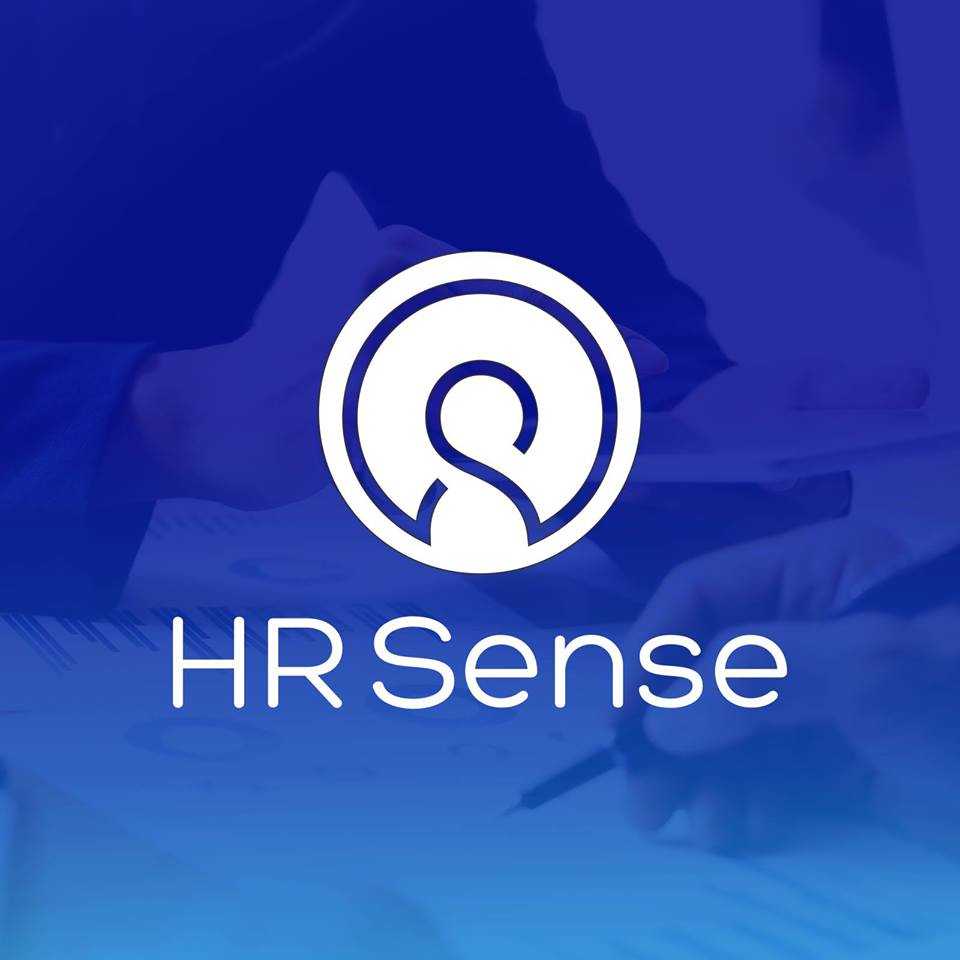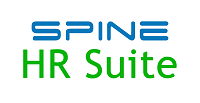Description

HR Sense

OrangeHRM
Comprehensive Overview: HR Sense vs OrangeHRM
HR Sense and OrangeHRM are both human resource management solutions designed to streamline and enhance HR processes. Here's a comprehensive overview focusing on their primary functions, target markets, market share and user base, and key differentiating factors:
a) Primary Functions and Target Markets:
HR Sense:
-
Primary Functions:
- Employee Self-Service: Allows employees to manage their personal information, submit leave requests, and view payroll and benefits information.
- Recruitment and Onboarding: Manages the hiring process from posting jobs to onboarding new hires.
- Performance Management: Tracks employee performance, sets objectives, and conducts reviews.
- Time and Attendance: Monitors employee attendance, manages schedules, and tracks working hours.
- Payroll Management: Facilitates payroll processing and compliance with legal and tax requirements.
- Benefits Administration: Manages employee benefits programs.
-
Target Markets:
- Typically targets small to medium-sized enterprises (SMEs) seeking a comprehensive, scalable HR solution.
- Industries vary widely, including retail, healthcare, technology, and manufacturing.
OrangeHRM:
-
Primary Functions:
- Core HR Administration: Manages employee information, organizational structure, and HR policies.
- Recruitment Module: Streamlines the recruitment process from vacancy creation to candidate selection.
- Leave Management: Simplifies leave requests and approvals with automated tracking.
- Time and Attendance Tracking: Offers tools for recording time, managing shifts, and generating attendance reports.
- Performance Management: Provides a platform for appraisals, feedback, and performance tracking.
- Training and Development: Facilitates employee training programs and tracks progress.
-
Target Markets:
- Focuses on small to medium-sized businesses with limited HR budgets.
- Attracts a diverse range of industries including education, non-profits, and professional services.
b) Market Share and User Base:
- Market Share and User Base:
-
HR Sense: Being a less widely recognized name compared to some competitors, HR Sense may have a smaller market share, largely focused on specific niche markets or regions. Its user base consists mainly of SMEs seeking features like easy implementation and scalability.
-
OrangeHRM: As one of the more popular open-source HR solutions globally, OrangeHRM has a broader market presence, particularly among small and medium enterprises. It reports millions of downloads and a large, active user community worldwide, indicating a strong foothold in the open-source HR software market.
-
c) Key Differentiating Factors:
HR Sense:
- Ease of Integration: Known for its smooth integration with third-party applications, which is crucial for businesses leveraging multiple tools.
- Customization: Offers high levels of customization to fit the unique needs of various businesses.
- Focus on Usability: Prioritizes user experience with an intuitive interface designed for non-technical users.
- Scalability: Particularly attractive to growing businesses due to its ability to scale with minimal disruption.
OrangeHRM:
- Open-Source Model: Offers a free, open-source version which is highly attractive for businesses looking to reduce costs, with the option to upgrade to paid versions for more features.
- Community Support: Strong community support helps in troubleshooting and further developing the platform.
- Flexible Deployment: Offers both on-premise and cloud deployment options, catering to diverse business needs.
- Modular Approach: Provides modules that can be added or removed according to specific business requirements, enhancing flexibility.
In conclusion, while both HR Sense and OrangeHRM offer comprehensive HR management solutions, their key differentiators lie in their deployment models, customization capabilities, and target markets. Businesses choose between these tools based on specific needs such as feature set, budget constraints, and the desired level of customization.
Contact Info

Year founded :
Not Available
+91 98796 06608
Not Available
India
http://www.linkedin.com/company/hrsense

Year founded :
2006
+1 914-458-4254
Not Available
United States
http://www.linkedin.com/company/orangehrm
Feature Similarity Breakdown: HR Sense, OrangeHRM
When comparing HR Sense and OrangeHRM, both of which are popular Human Resource Management (HRM) solutions, we can break down their similarities and differences as follows:
a) Core Features in Common
Both HR Sense and OrangeHRM offer several core HR functionalities, including:
-
Employee Information Management: Both systems provide robust databases to store and manage employee information, such as personal details, job roles, and employment history.
-
Leave and Attendance Management: They offer features for tracking employee attendance, managing leave requests, and calculating leave balances.
-
Performance Management: Both platforms include tools for setting employee goals, conducting performance appraisals, and generating performance reports.
-
Payroll Management: Basic payroll functionalities are integrated, allowing for the management of employee salaries, taxation, and other deductions.
-
Recruitment and Onboarding: The software includes modules for recruitment, such as job posting, resume management, and applicant tracking, along with features to onboard new employees effectively.
-
Reporting and Analytics: Both offer reporting capabilities, enabling the generation of various HR analytics to aid decision-making.
b) User Interface Comparison
-
HR Sense: This tool is often praised for its user-friendly interface that focuses on simplicity and easy navigation. The design is typically intuitive, preventing overload from too many options on a single screen, making it ideal for users who prefer a straightforward experience.
-
OrangeHRM: Known for its customizable interface, OrangeHRM provides users the ability to tailor the dashboard according to their preferences. As an open-source platform, it offers a slightly more complex interface that might feel more robust for experienced users accustomed to more detailed system navigation.
c) Unique Features
- HR Sense:
- Integration with Other Tools: HR Sense may offer seamless integration with other business management tools or HR-focused modules, enhancing its utility in a comprehensive business ecosystem.
- Simplified User Experience: Emphasizes an effortless learning curve with minimal training required.
- OrangeHRM:
- Open-Source Flexibility: One of the most significant differentiators is OrangeHRM’s open-source nature, enabling companies to customize it extensively to suit their specific needs.
- Community Support and Extensions: A large community supports OrangeHRM, providing a wide range of plugins and extensions.
- Advanced Modules: Often comes with more advanced features in areas like recruitment and employee self-service options, depending on the version (e.g., open-source, professional, or enterprise).
In summary, while both HR Sense and OrangeHRM share core HR functionalities, they differ in user interface design and unique features. HR Sense focuses on user-friendliness and integration capabilities, whereas OrangeHRM offers customizability and advanced features, especially appealing to those who need more extensive customization and support from a large community.
Features

Not Available

Not Available
Best Fit Use Cases: HR Sense, OrangeHRM
OrangeHRM offers two significant products designed to meet various human resource needs: HR Sense and the broader OrangeHRM suite. Both serve distinct purposes and cater to different types of businesses and scenarios.
a) HR Sense by OrangeHRM
Best Fit Use Cases:
-
Small to Medium-Sized Enterprises (SMEs): HR Sense is ideal for smaller businesses that need a straightforward, easy-to-deploy solution for HR management without the complexities often associated with larger systems.
-
Startups: For startups that are looking to establish foundational HR processes, HR Sense provides tools that are scalable and can grow with the business as it expands.
-
Project-Based Teams: Companies that work on a per-project basis or have dispersed teams may find HR Sense beneficial, as it facilitates management of HR functions with minimal overhead.
-
Organizations Seeking Cost-Effective Solutions: Businesses operating under tight budgets but still needing effective HR management tools can benefit from HR Sense’s cost-effective approach.
Industries:
- Retail
- Hospitality
- Education
- Non-profit organizations
b) Preferred Scenarios for OrangeHRM
Use Cases Where OrangeHRM is Preferred:
-
Larger Enterprises: OrangeHRM caters well to larger organizations that require a comprehensive suite of HR tools for managing complex HR tasks across diverse departments.
-
Organizations Needing Customization: Companies that require highly customizable HR solutions to accommodate unique business processes and workflows often prefer OrangeHRM.
-
Businesses Focusing on Compliance and Reporting: Those that need robust compliance tracking and reporting capabilities will find OrangeHRM’s extensive feature set advantageous.
-
Organizations with Global Reach: For businesses operating in multiple countries, OrangeHRM's ability to handle complex organizational structures with multilingual and multi-currency capabilities is highly beneficial.
Industries:
- Manufacturing
- Finance and Banking
- Technology
- Healthcare
d) Catering to Industry Verticals and Company Sizes
HR Sense:
- Small Businesses: Provides essential HR functionalities, such as employee records management, time tracking, and leave management, which are critical for small businesses to streamline their HR processes.
- Specific Vertical Utilization: Industries like education or hospitality that do not require extensive HR customizations will find HR Sense particularly aligns with their streamlined operational needs.
OrangeHRM:
- Medium to Large Enterprises: Offers a comprehensive suite that includes features like advanced performance management, complex payroll integration, and detailed analytics critical for larger organizations.
- Industry-Specific Solutions: OrangeHRM’s ability to customize and integrate with various third-party applications makes it suitable for highly regulated industries, such as finance or healthcare, where compliance and detailed reporting are crucial.
In conclusion, HR Sense is best suited for smaller businesses and startups needing a straightforward, affordable HR solution, while OrangeHRM shines in larger, more complex organizations that require more extensive, customizable HR capabilities. Each product has been designed to cater to specific needs based on company size, industry vertical, and operational complexity.
Pricing

Pricing Not Available

Pricing Not Available
Metrics History
Metrics History
Comparing teamSize across companies
Conclusion & Final Verdict: HR Sense vs OrangeHRM
Conclusion and Final Verdict for HR Sense vs. OrangeHRM
After analyzing both HR Sense and OrangeHRM, a well-rounded decision can be made by considering the features, usability, customization options, pricing, and customer support offered by each product. Here's a detailed comparison and recommendations to guide users in making an informed choice.
a) Considering all factors, which product offers the best overall value?
Overall Value Verdict:
- OrangeHRM generally provides better overall value due to its comprehensive feature set, adaptability to different business sizes, and flexibility in offering both open-source and enterprise versions. It stands out particularly for organizations that need scalable and customizable solutions.
b) Pros and Cons of Choosing Each Product:
HR Sense:
Pros:
- User-Friendly: Designed with an intuitive interface, making it easy for HR teams to adopt with minimal training.
- Cost-Effective: Generally more budget-friendly for small to mid-sized businesses.
- Specific HR Features: Includes essential modules for payroll, attendance, and leave management.
- Quick Setup: Faster deployment time due to its simplified structure.
Cons:
- Limited Customization: Offers less customization compared to OrangeHRM, potentially limiting scalability.
- Basic Features: May lack advanced HR functionalities that growing businesses require.
- Vendor Lock-In: Limited integration capabilities with third-party applications.
OrangeHRM:
Pros:
- Comprehensive Feature Set: Provides modules for performance management, recruitment, and employee self-service, among others.
- Customizable: High level of customization allows businesses to tailor the software to their specific needs.
- Scalable: Suitable for small businesses to large enterprises.
- Open Source Option: Provides a free, open-source version, which is a great starting point for businesses with limited budgets.
Cons:
- Complexity: The extensive features might pose a learning curve for new users.
- Cost: The enterprise version can become expensive, especially with additional modules and support.
- Setup Time: Initial deployment and customization might take longer due to the broader feature set.
c) Specific Recommendations for Users Trying to Decide Between HR Sense vs. OrangeHRM:
-
For Small Businesses or Startups:
- Consider HR Sense if you are looking for a straightforward, cost-effective, and easy-to-use solution without the need for extensive customization or advanced features.
-
For Medium to Large Enterprises:
- OrangeHRM is recommended due to its scalability, extensive feature set, and ability to adapt to complex HR processes.
-
Organizations Requiring Flexibility and Customization:
- Choose OrangeHRM, especially if there is a need for integrating additional modules or specific third-party systems that require a high degree of flexibility.
-
Budget-Conscious Organizations:
- Start with OrangeHRM’s open-source version and consider transitioning to the enterprise edition as the business grows and demands evolve.
In conclusion, the decision between HR Sense and OrangeHRM largely depends on company size, budget, and specific HR requirements. Evaluate what aspects are most critical for your HR operations and future growth to make the best choice.
Add to compare
Add similar companies



